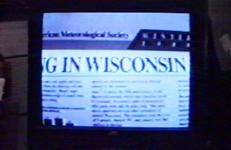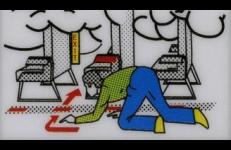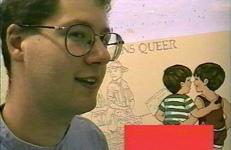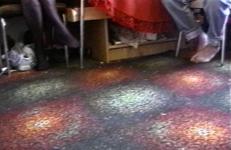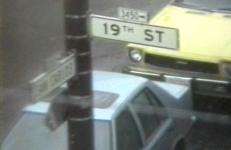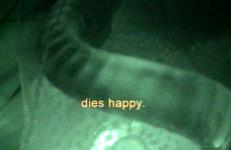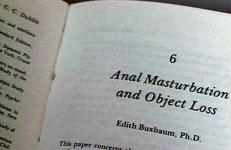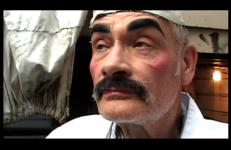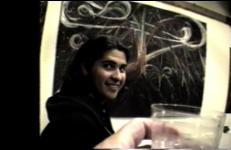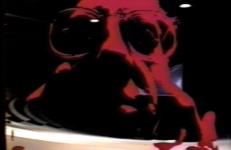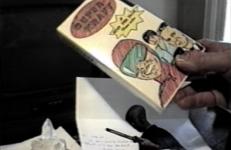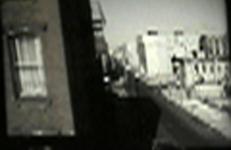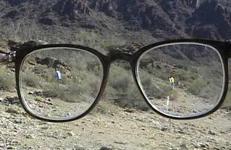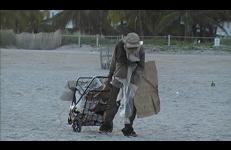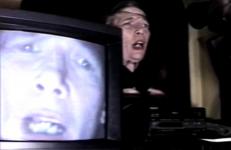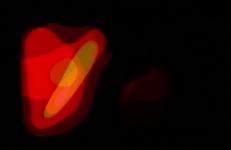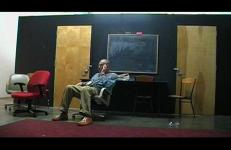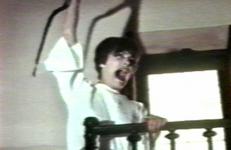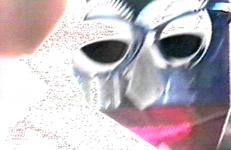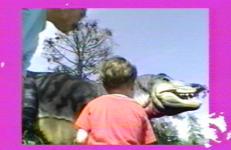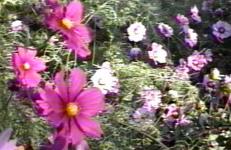A video diary about Cuthand's efforts to undergo artificial insemination. Cuthand contemplates a desire to have children and its relation to preserving Indigenous culture.
Diary
The dark and sloppy side of touring college towns with your work. An internal expose of external secretions that unfortunately make it to the boob tube in full color.
This title is also available on The World of George Kuchar.
A brief visit with a graduate student in the painting department of the art college where Kuchar teaches and the discussion that follows the unveiling of his work. Stroll through a gallery of acryllic-rendered innocence gone awry and the yo-yo generation in heat.
An animation developed from the collective experiences of a diverse group of LGBTQIA+ people to create a narrative. The result is a queer valentine having a fever dream.
Donigan Cumming’s improvisational style traverses the boundaries of tragedy and comedy, drama and documentation. In After Brenda, Cumming redefines the genre of popular romance. His abject hero is Pierre, a fifty-something male who has lost everything in the name of love. He is homeless and adrift, an unwanted guest with nothing to offer but a tale. After Brenda searches the hearts and rooms of his audience, seizing the evidence of sex, love, and survival.
In the first of George Kuchar’s Alumni Series, he braces the unusually volatile weather, contending with torrential rain and flooding on his way to visit the apartment of alumni Peter Van Langen. Van Langen will be remembered for his role as Captain Toby Steel in Kuchar’s La Verbotene Voyage from 1989. Unlike his character’s brooding hostility toward nature, Van Langen and his roommate are much more at ease as they lounge around their loft in hammocks. After talking with Van Langen about his experience working with B-movie director Roger Corman.
"I'm not going to go to the Anne Frank House—I don't think I could take it—being a tourist is bad enough—though I'm not really a tourist—I'm here working—my camera's the one on vacation—taking holiday sounds and images—it's having a nice change of pace—for me it's still the same old thing—talking and talking.
"Ever on the lookout for learning opportunities, Reinke envisions an art institute where you don’t have to make anything, and with a library full of books glued together. All the information’s there—you just don’t have to bother reading it!"
—New York Video Festival (2002)
Making art and movies becomes the overall thrust of this foray into hives of humming wanna-bees being all that they can be thanks to the magic of chalk and cinema. Through it all there trudges the arthritic frame of he who samples the honey pot along with gobs of eggplant parmigiana, etc., etc., etc.
A young painter, and his somewhat slower roommate, talk of paranormal occurrences in a room of charcoal canvasses and ephemeral renderings. Eavesdrop on the improbable and the impossible (BUT TRUE!).
It stands as a mecca to 16mm film, and weathers the withering breath of a shifting climate. Bundled-up in opulence and optimism, the film festival goes onward and upward while I succumb to a glacial deposit that proves unflushable.
The San Francisco Art Institute's 100th anniversary is absorbed into this portrait of alumni in the heat of creation and pasta softening.
Film and video maker Ken Kobland returns to the urban landscapes he filmed 20 years previously, such as the New York subway and the S-Bahn in Berlin. We leave, we travel, but it’s always the same images that we are drawn to. A moving road movie about eternal departure and arrival.
A cactus-strewn desert becomes the backdrop for this series of filmic stopovers that focuses on the living quarters assigned the assignee of this adventurous arrangement. Great natural beauty clashes with manufactured outdoorsmanship, as a tired body and sluggish mind seek the oblivion of hotel hospitality in an arid region of artistic aspirations. The viewer is introduced to a world of prickly plants and satin-skinned succubi who prowl the alleys of western decay to staple their fig leaflets on the vertical shafts that poke unsheathed at the virgin skies of southern Arizona.
In this wry confessional video, Steve Reinke appears — shirtless and lavishly tattooed — in a basement, playing archival clips and delivering arch disquisitions on his filmmaking and the ways in which images represent his engagement with the world.
A brief trip to the Miami '09 art festival was the moving (or swimming) force to instigate this travelogue. There are some bathing sequences sprinkled about and lots of munching going on in this latest addition to my Christmas video series. There's even a Santa Claus figure trodding across sand instead of snow; but don't let that dismaying personage in shades of gray discolor an otherwise plentiful poo-poo platter of pulchritude.
The artists of the future and the past converge and converse as the funding dries up and extrapolation envisions extinction.
Nine micro-essays on animation and death--with many appearances including Goethe, Pink Floyd and Bambi--leads to a final encounter and introduction.
A quickie side trip to the Virginia Film Festival highlights some nice, fall foliage and a few fleeting faces as the camera probes a sculptural artifact or two before abruptly shutting down.
A behind-the-scenes look at the man behind the trophy and the poisons that taint an otherwise jubilant jamboree.
This title is also available on The World of George Kuchar.
A Fourth of July celebration ignites the Id and unleashes a digital demon hungry for imagery of the young and the restless to appease the contraption it sees through: the cannibal camcorder in a state of carniverous conniptions!
The five-and-dime store pulsates with the stench of she-who-shops. Follow this ragdoll apparition as she haunts the futuristic landscape of our buried past and rejoice in the resurrection of the cellar celebrity.
The waters run deep as massive jaws chomp and bubbles burst in a world gone mad with technological delusion and prehistoric puppetry.
The unstable earth becomes the epicenter of this videotape document which explores—in a fractured way—the relationships between the people, places, and furniture that sit atop the San Andreas Fault.





